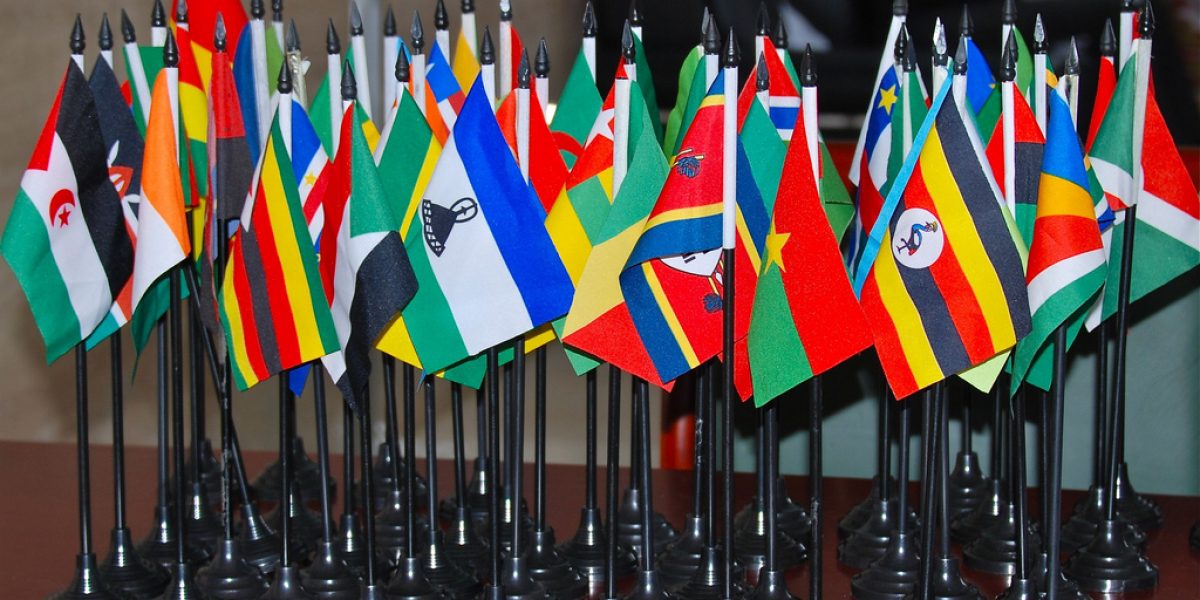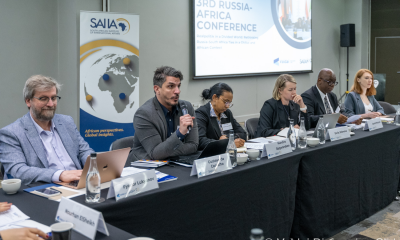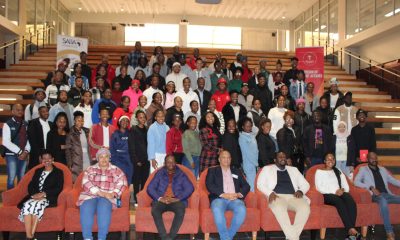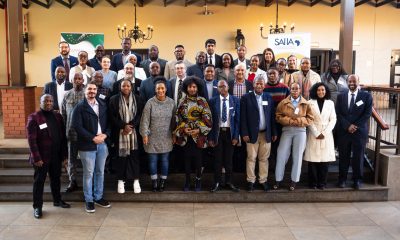On 29 June, the African Peer Review Mechanism (APRM) Forum of Heads of State and Government convene, where Zambia is set to become the 15th country to be peer reviewed, a revised APRM Questionnaire is being considered, and many states will report on implementing their National Programmes of Action. Governance gaps will also be considered in Midrand, South Africa on 28 June, when the APRM Monitoring Project (AMP) – run jointly by SAIIA, the Centre for Policy Studies (CPS) and the Africa Governance, Monitoring and Advocacy Project (AfriMAP) – will launch its independent assessment of governance in South Africa entitled “Implementing the APRM: Views from Civil Society”.
A novel highlight of the report is the South African Ratings page.
Assembled collaboratively over the past year by several South African civil society organisations (CSOs), this report scrutinises the country’s track record in fighting corruption, managing diversity, addressing xenophobia and racism, managing elections, consolidating democracy and upholding the rule of law, as well as confronting social exclusion and effective service delivery. All of these are key priorities for the current government. The report also seeks to give voice to CSOs that felt their views were not adequately reflected in the South African APRM Country Self-Assessment Report in 2005-2006, and subsequent implementation reports published in January 2009 and January 2011. It concludes that much still remains to be done to fulfill the country’s commitments under the APRM. Management of elections stands out as excellent among generally mediocre performance.
The report also uses a “robot rating system”, assigning a green light to governance issues being managed well (only elections in this case); an orange light to areas of mixed performance (the bulk of issues fall into this category); and a red light for areas with formidable policy implementation challenges and backlogs. Seven issues that received red lights, signalling serious concern: combating corruption; party–state separation and relationships; cadre deployment and politicisation of institutions; regulating private funding to political parties; xenophobia; poverty; and unemployment. Several others – including land and agrarian reform, healthcare and education – received orange ratings due to a mixture of relatively good policies but relatively poor implementation.
The report also highlights a cluster of issues related to the media, a subject generally ignored by the APRM (and for this reason, ratings were not assigned). They include threats to press freedom, especially through the proposed Protection of Information Bill and Media Tribunal; and increased harassment of journalists.
Parliament needs to be more assertive in its oversight role over the executive. Although formal channels and platforms for popular participation in policy exist, they are often ceremonial and make little difference to decisions. The challenges of managing diversity, race and racism and xenophobia are examined and the increasing and dangerous use by politicians of rallying around race is highlighted. The report strongly emphasizes that government’s response to the increase in xenophobic violence is uncoordinated and inadequate.
Problems with quality healthcare persist despite high spending, and HIV and Aids infection rates, although stablising, remain very high. Improve school enrolment has yet to translate into quality education, or to produce the critical skills the economy needs to make a dent in widespread poverty, inequality and unemployment.
Finally, this report also highlights the relatively low profile that the APRM currently has in South Africa, both within government and civil society. Even when reforms that it recommends are made – such as scrapping parliamentary floor-crossing – these changes are in no way linked back to the APRM. At the launch of the AMP in October 2010, South Africa’s APRM Focal Point Minister Richard Baloyi said, “Civil society participation in monitoring of implementation of the NPoA is one of the requirements of the APRM.” Hopefully, this report – through its examples, analysis and recommendations – goes some way towards fulfilling those expectations. It is now up to South Africans to use it to further their goals and aspirations, and to hold leaders to account for their promises.
Steven Gruzd is the Head of the Governance and APRM Programme at the South African Institute of International Affairs.
The AMP-SA Report is available for download:
Download – English [.pdf]
Links to:
Ten Reasons to Keep Faith with Africa’s Peer Review Process
by Steven Gruzd
SAIIA Policy Briefing, No 17, May 2010
SAIIA Roundtable: The African Peer Review Mechanism – Progress and Prospects
Summarised by Steven Gruzd
SAIIA Occasional Paper No 59, April 2010
Off Track? Findings from South Africa’s First APRM Implementation Report
by Yarik Turianskyi
SAIIA Occasional Paper, No 53, January 2010








